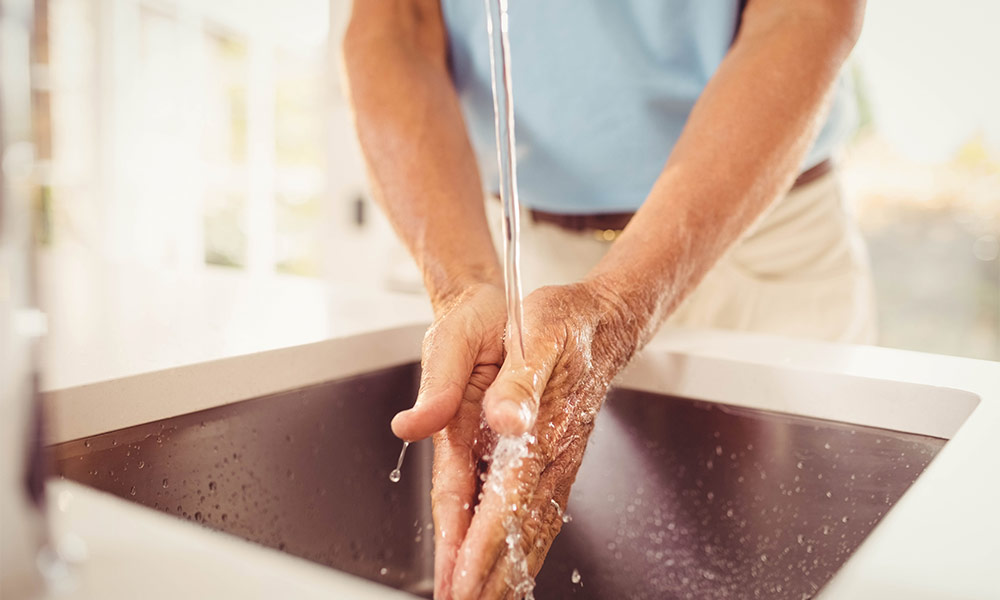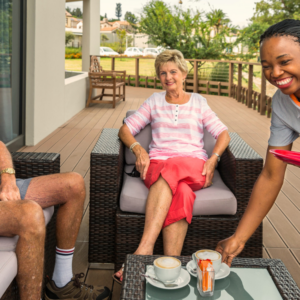
What can you do to protect yourself from the coronavirus?
COVID-19 has the global community on high alert after the coronavirus that causes it was first identified on 29 December 2019 in the city of Wuhan, China. Seniors are most at risk according to a recent Time.com article which reports that, “One study out of China found that the average age of COVID-19 patients who developed acute respiratory distress syndrome — a severe shortness of breath often caused by fluid in the lungs and requiring a ventilator — is 61.”
The same article also states that, “As early as January, Chinese health authorities were already reporting that the median age range for people who died of the disease was 75.” With the first South African case (a 38-year-old businessman from Hilton in Durban) being confirmed last week, here’s a look at what you can do to protect yourself from this fast-spreading disease.
What is coronavirus and COVID-19?
Coronaviruses (CoV) are a group of zoonotic viruses (they are transmitted between animals and people) responsible for several illnesses, ranging from the common cold to Severe Acute Respiratory Syndrome (SARS-CoV) and Middle East Respiratory Syndrome (MERS-CoV). COVID-19 stands for coronavirus disease – the number indicates the year in which the strain was first recorded – and is what’s referred to as a novel coronavirus (nCOV) as this is the first time it has been seen in human beings. The specific strain of the coronavirus responsible for COVID-19 is severe acute respiratory syndrome coronavirus 2 (SARS-CoV-2).
COVID-19 around the globe*
- 119,132 infections
- 4,284 deaths
- 65,776 recovered
- 115 countries affected
- 1–14 day incubation period
- 3.4% mortality rate
- 7 confirmed cases in South Africa
*As at 11 March 2020
Sources: worldometers.info, ourworldindata.org
Symptoms
The most common symptoms of COVID-19 are fever, a cough and shortness of breath, with a recent analysis of the available data (as reported by theguardian.com) finding that, “5.1 days was the median length of time before people started showing signs of illness, although there was a wide range of incubation periods, with a tiny minority of people taking up to two weeks.” The virus can affect those afflicted for up to two weeks, with more serious cases lasting between three and six weeks.
How can you protect yourself?
Here’s what the World Health Organization recommends people do to protect themselves and prevent the spread of the disease:
- Wash your hands frequently – regularly and thoroughly clean your hands with an alcohol-based hand rub or wash them with soap and water.
- Maintain social distancing –maintain at least 1 metre distance between yourself and anyone who is coughing or sneezing.
- Avoid touching eyes, nose and mouth –hands touch many surfaces and can pick up viruses. Once contaminated, hands can transfer the virus to your eyes, nose or mouth. From there, the virus can enter your body and can make you sick.
- Practice respiratory hygiene – make sure you, and the people around you, follow good respiratory hygiene. This means covering your mouth and nose with your bent elbow or tissue when you cough or sneeze. Then dispose of the used tissue immediately.
- If you have fever, cough and difficulty breathing, seek medical care early – stay home if you feel unwell. If you have a fever, cough and difficulty breathing, seek medical attention and call in advance. Follow the directions of your local health authority.
- Stay informed and follow advice given by your healthcare provider – stay informed on the latest developments about COVID-19. Follow advice given by your healthcare provider, your national and local public health authority or your employer on how to protect yourself and others from COVID-19.
Source: who.int
The South African Department of Health has put out this video on tips to prevent COVID-19.



